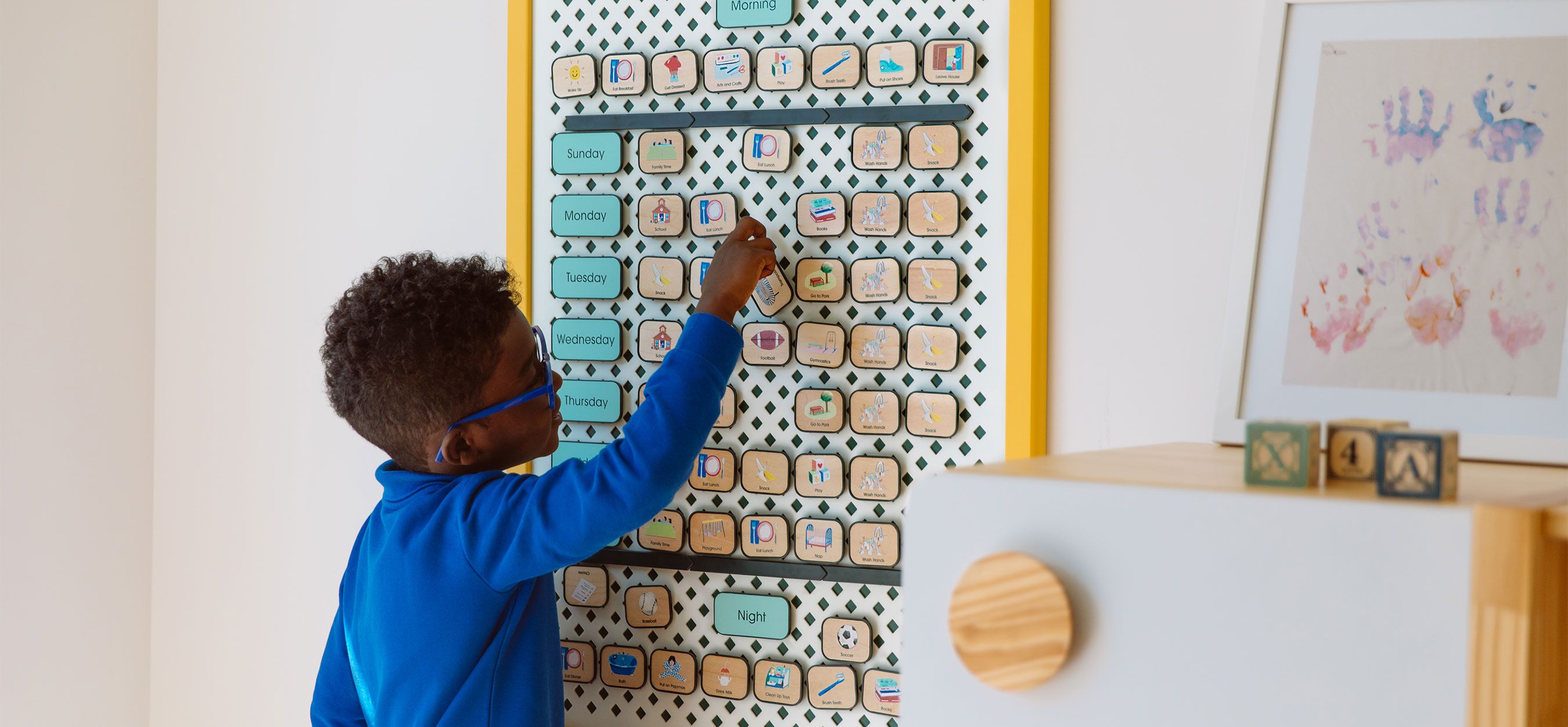
Ask An Expert
4 Simple Tips For Surviving Winter Break
Winter break is a magical time—filled with festive celebrations, cozy family moments, and a break from the usual daily grind. But with kids home from school, holiday to-do lists piling up, and routines out the window, it can quickly tip from joyful to chaotic. The good news? We asked early-childhood educator Allie Klein for some practical tips to help your family find balance and keep the magic alive this winter break.
- Written By
- Allie Klein
Winter break can bring joyful celebrations of the season and a welcome pause from the day to day. But with kids home from school, the holiday hustle in full swing and schedules thrown off, it can also bring its share of craziness. That’s where the power of routine comes in. Here are a few ways to bring rhythm to your winter break with family ritual and routine.
Lean on a Visual Schedule
Even if your child’s day doesn’t look the same as it does when school is in session, give a rhythm to home days with a visual schedule. Use a tool, like the Springboard, to outlin e the day’s activities with your child. As you do, talk with your child and answer questions about when special holiday moments like decorating the tree or visiting relatives will happen. Children thrive on predictability and visibility so when they know what to expect, even (and especially!) if it’s different from their norm, it helps them to stay regulated. Plus, using a visual schedule helps the whole family know what to expect, which helps everyone move through the season with more calm and ease.
Bring Routines into Travel
Maintaining pieces of our family routines during holiday travel gives children a sense of stability and comfort, even in new environments. Small, familiar rituals like a consistent wake-up time or a special bedtime routine help children adjust and feel secure. If you’re spending time with extended family it might help to share the parts of your family’s regular routine that you’ll be sticking with throughout holiday visits and travel so everyone is on the same page. If it’s feeling really tricky to maintain a routine, try to anchor the day with just a few predictable moments, like quiet time before bed or an afternoon snack break.
Boost Family Morale
If your family needs a boost after the excitement of the holidays has died down, embracing a new daily ritual can lift moods. Simple rituals, like sharing the “high” of your day at dinner, can serve as a meaningful way to reconnect as a family, without requiring tons of time or effort. For something more active try making clean up time a “cleanup freeze dance.” Put on music and dance around together as you pick up toys or tidy together. Take turns acting as the DJ and occasionally pause the music, forcing everyone to freeze mid-clean. These simple additions to the routine go a long way in helping to shift the energy in your home.
Prep For the Back-To-School Transition
Heading back to school after the holidays can be a let down for some children. Prepare by using the Springboard to help your child visualize what heading back to school will look like in advance. Talk about the daily routine, new activities that are beginning and answer any questions they have.
If your child expresses fear or anxiety about heading back, acknowledge your child’s feelings, without trying to “fix” (or rush through) the tough stuff. This often means talking less and listening more.It’s also important to show your child that it’s possible to feel two (or more!) very different emotions at the exact same time. Be honest with your child about the mix of emotions you’re experiencing. When sharing your own feelings, try replacing the word BUT with AND:
Instead of saying, “I’m sad that winter break is coming to an end, I love our special family time BUT I’m excited for you to have a great rest of the year at school.”
Try saying, “I’m sad that winter break is coming to an end, I love our special family time AND I’m excited for you to have a great rest of the year at school.”
BUT rushes and/or diminishes uncomfortable feelings. AND acknowledges the complexity of mixed emotions. When this simple language shift becomes a family habit, children learn to identify their feelings without judging them.
Most importantly, take the pressure off of yourself this winter break! Remember, it’s not about perfection, but about finding a rhythm that helps your family thrive during this season.
Allie Klein
An early childhood educator, toddler mom, and co-founder of Charmspring.
